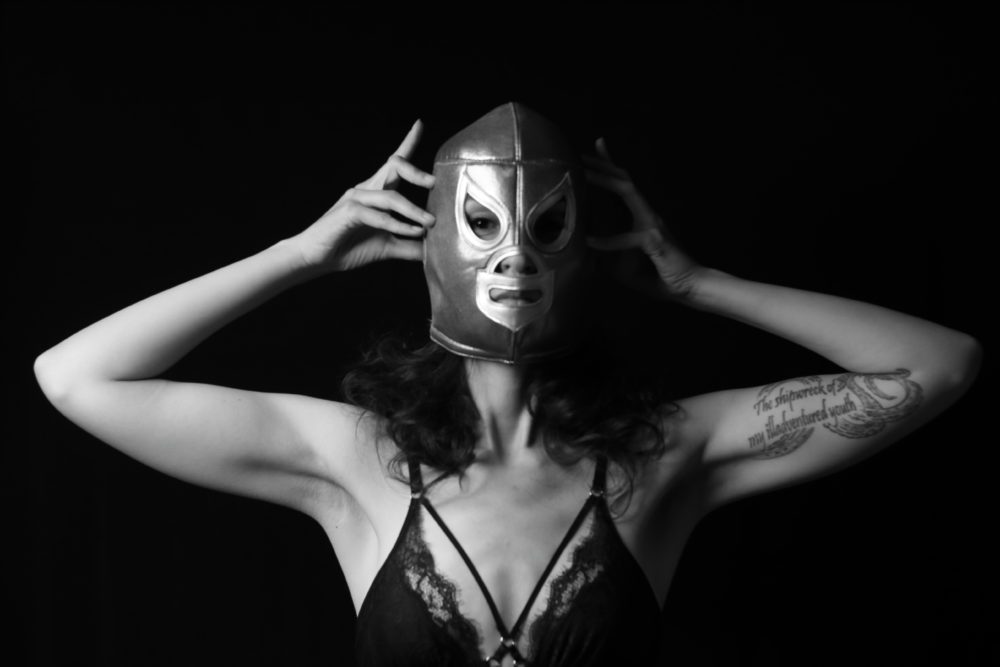

Every Saturday, L.A.-based podcaster Nancy Diaz-Ibarra adopts the name Napalm Nanny and drops a bomb filled with classic tunes and trivia. On Napalm Nanny and the Shack, music is a tool to dig into facets of cultural history that often remain fairly obscure. A disco set leads to the story behind the development of roller skating and an episode focusing on ’60s girl groups doubles as a love letter to the famed beehive hairstyle. Diaz-Ibarra isn’t just spouting facts for the sake of it, though – she’s making connections to bigger points about immigration, feminism and racism in the U.S.
Diaz-Ibarra had been sharing music, articles and podcasts – “whatever caught our eye,” she says – with friends every morning. One pal had tuned her into Steven Van Zandt’s long-running radio show Little Steven’s Underground Garage and suggested that she do something like that. Diaz-Ibarra didn’t know how to make a podcast, but figured she could teach herself. “I just thought if I don’t do it now, then when?” she says. “Why should I wait for a perfect moment to start something?”
Napalm Nanny and the Shack launched in February with Diaz-Ibarra learning how to make a show with every episode. She records and edits the podcast herself and, save for some commissioned pieces, makes the cover at as well.
Now half-a-year into her podcasting journey, Diaz-Ibarra recalls listening to some of those early episodes. “It was so cringe-worthy,” she says, noting the nervousness in her voice when she debuted. “Even my friends, they were very harsh critics, very honest critics,” she adds. She says that making the weekly show has been a process of becoming more comfortable with her voice and “finding a rhythm” that dictates how much music she plays and how much information she shares.
Each episode has a theme, ranging from The Cramps’ fetish influences to the role that some musicians played during the Cold War. “I honestly wish I could explain the message, but it’s all just scribbled in a notebook,” she says of the show. “It’s whatever I find interesting, to be honest.”
There’s a lot of research that goes into each episode. “I usually do it the old school way, where I read through articles and take my notes,” she says. “I might have an idea of where an episode might take me, but, sometimes, it completely changes depending on the research.”
Driving the series is the music, which varies from episode to episode, but includes a lot of garage rock and soul with a selection that’s impeccable. You’ll hear some stuff you know, but a lot of it may be unfamiliar. “For me, music has always been an escape,” says Diaz-Ibarra. “I didn’t grow up in the happiest of homes. I grew up in a city where violence was pretty common. I grew up in Lynwood. Watts, Compton, those were my stomping grounds as a kid,” she says. “Growing up and saying I can recognize gun shots, it’s not something that’s all that common. It’s common for me and my community. But, when I put on headphones or played with the radio, it sent me somewhere completely different and it’s something that meant the world to me.”
Diaz-Ibarra continues, “Because it means so much to me, it’s something that I want to share with others.”

Nanny Napalm and the Shack was made for her friends, but anyone else who wants to listen is welcome to join the ride. And they have. “I’ve met some really wonderful people sharing with me their interests or sending me music,” Diaz-Ibarra says. “It’s developed a pretty sweet community.”
In a recent episode, Diaz-Ibarra explored telenovelas, connecting the serialized television shows to immigration experiences. After the episode, she heard from listeners who recalled the series they had seen with their family. “I think that pop culture is something that we’re surrounded with, even if we don’t realize it,” she says. “We might be playing in the background, but whatever our parents are watching, it has definitely impacted us.”
Diaz-Ibarra recalls televnovelas being on at home while she was growing up. “I can’t remember which specific novela my mom would watch – there were so many of them,” she says. But, as an adult, Diaz-Ibarra reflects on the significance of the shows. “Having the language in the living room once again meant the world to her. For me, it was just noise in the background.”
Sometimes, one episode isn’t enough; it’s in those two-parters where Diaz-Ibarra’s mission might be revealed. Take, for example, her “Ranfla Cruise” episodes, which looks at lowrider culture and how it was impacted by racist laws in California, which led to one customizer, Ron Aguirre, to develop the car hydraulics system. Today, everyone is familiar with lowriders, but they might not know who Aguirre is. “I think that there are a lot of misconceptions within these really niche scenes and that’s what I really love to dig into,” says Diaz-Ibarra. “There are a lot of unknown, unsung heroes there.”

